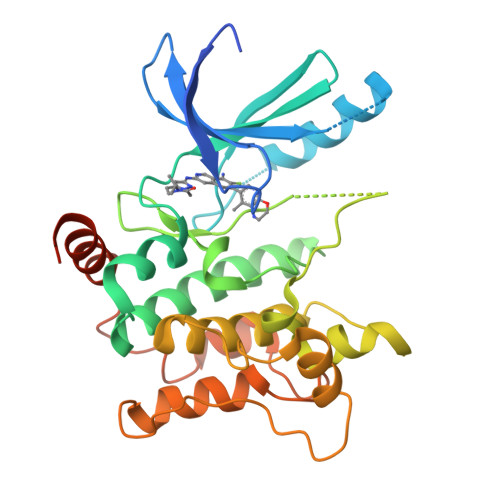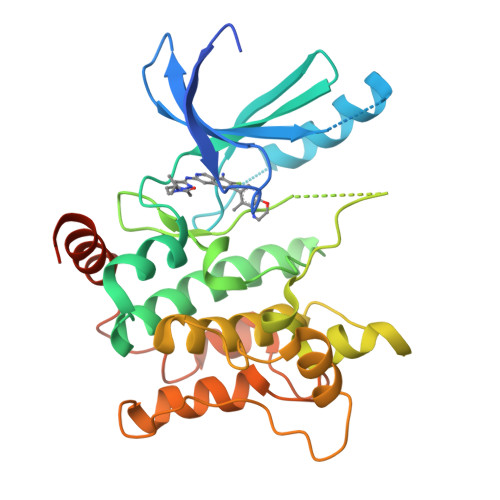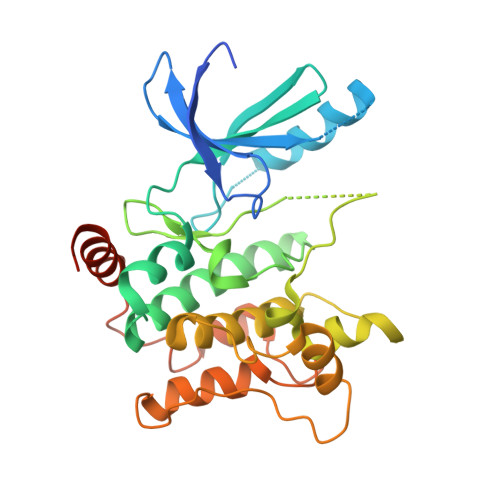Discovery of quinazoline HPK1 inhibitors with high cellular potency.
Toure, M., Johnson, T., Li, B., Schmidt, R., Ma, H., Neagu, C., Lopez, A.U., Wang, Y., Guler, S., Xiao, Y., Henkes, R., Ho, K., Zhang, S., Chu, C.L., Gundra, U.M., Porichis, F., Li, L., Maurer, C.K., Fang, Z., Musil, D., DiPoto, M., Friis, E., Jones, R., Jones, C., Cummings, J., Chekler, E., Tanzer, E.M., Huck, B., Sherer, B.(2023) Bioorg Med Chem 92: 117423-117423
- PubMed: 37531921
- DOI: https://doi.org/10.1016/j.bmc.2023.117423
- Primary Citation of Related Structures:
8CDW, 8CIJ - PubMed Abstract:
Hematopoietic progenitor kinase 1 (HPK1) is regarded as a highly validated target in pre-clinical immune oncology. HPK1 has been described as regulating multiple critical signaling pathway in both adaptive and innate cells. In support of this role, HPK1 KO T cells show enhanced sensitivity to TCR activation and HPK1 KO mice display enhanced anti-tumor activity. Taken together, inhibition of HPK1 has the potential to induce enhanced anti-tumor immune response. Herein, we described the discovery of highly potent HPK1 inhibitors starting form a weak HTS hit. Using a structure-based drug design, HPK1 inhibitors exhibiting excellent cellular single-digit nanomolar potency in both proximal (pSLP76) and distal (IL-2) biomarkers along with sustained elevation of IL-2 cytokine secretion were discovered.
Organizational Affiliation:
Discovery & Development Technologies, Medicinal Chemistry, EMD Serono Research & Development Institute, Inc., Billerica, MA 01821, United States. Electronic address: momar.toure@emdserono.com.



















